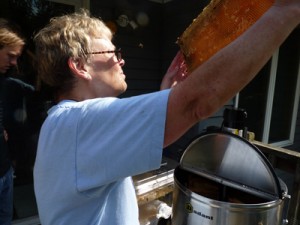Winter Waning Moon of the Winter Solstice
1967. Anastasia Pydych, a docent friend, has done a movie on 1968 which has a relevance to her father that I can’t recall right now. A friend of hers, a writer for Rolling Stone, has a book underway about 1967.
When told her I was a sophomore in college that year, she said, “Oh, that’s perfect. That would have been the perfect time.” It reminded me of a comment made by one of the interviewees for the Sierra Club policy position, “I wish it could be like in the 70’s, when people had passion.”
We didn’t know it was historic, that year, we were living it. It was a confusing, wonderful, chaotic, astonishingly hopeful, colorful, drugfull, penetrating, unafraid time. Long ago, I don’t recall where now, I read that the 60’s happened because there was so many young adults than mature adults, that we, in effect, socialized ourselves. That still seems like the most cogent explanation I’ve heard for the extraordinary sense of freedom and possibility that swept through my corner of the world, central Indiana. As people passed through town, Muncie, and as some of us hitchiked around and saw other campuses in other states, we knew personally that it was not just us. A crazy, heady wind had begun to blow, and the times, as Dylan said, were obviously changin’.
It was in ’67 when the draft became a big issue, right across the country. And, yes, there is an obvious class bias involved in draft deferments, since those of us in college could get one and those who weren’t couldn’t. Yes, again, there were many baby boomers, probably most, whose lives went on as they would have anyhow, taking a factory job, going into the military, learning a trade, trying out different jobs, getting married, settling down and raising kids.
That wasn’t the way it felt at the time, however. In those years we believed, as I still believe, that US adventurism and a naive anti-Communism had caused us to insert ourselves in a civil war centuries old, a war in which we had no self-interest and chose our allies only because they identified themselves as the anti-communists. Most of us men in college then, at least those of us on the left, saw the draft as a form of indentured servitude, only with a cruel twist, in this case the slaves had to die or kill. Not a great choice. Many of us, like me, were selective objectors, that is we opposed the Vietnam War as a stupid meat-grinder conceived in Washington and held in place by machismo gone wild, but we were not conscientious objectors, that is, we did not object to all wars.
That sense of being at odds with the ultimate power of the land, the Federal Government, was a powerful glue. It stuck us together. We were more disparate than unitary in our objections to the draft, but we were at one in our objection to the war.
This sense of overagainstness, a feeling bordering on outlaw, made us courageous and reckless. It made the days, the hours, we lived focus on experimentation, on analysis, on argument, on planning, yes, but also on relationships, parties, drugs and acid rock. If the man didn’t understand us, we’d understand ourselves. And boy we worked at it.
If you’re going to San Francisco… I missed the Summer of Love and Woodstock, though I did make it to two hot years of the Cincinnati Jazz Festival. I wish I could get the words to say how it felt then. We felt free, even called, to challenge anything and everything: our parents, their values, college administrations and their ridiculous in loco parentis, the draft boards, day-to-day reality, sexual limits, congress, the President, the military. All of it, each day, every minute. The times were so intense, so charged, so electric.
Well, here’s the thing. Kate has a colonoscopy in the morning and I have to drive her. I’m drawing Social Security and so is she. This next week is her last week of full time work. 1967 is a long time ago is what I’m saying. But, boy am I glad I was part of it. It was quite a ride.

 retirement with good news on the intestinal tract. She also three crowns going in a couple of weeks from now, new glasses (several) and the new hip (August) and the l-4 l-5 fusion last March. She’s ready to hit the new year sewing and cooking and visiting the grandkids, all parts intact and functioning, more or less. A big shout out to Kate as she starts her last week of full time work.
retirement with good news on the intestinal tract. She also three crowns going in a couple of weeks from now, new glasses (several) and the new hip (August) and the l-4 l-5 fusion last March. She’s ready to hit the new year sewing and cooking and visiting the grandkids, all parts intact and functioning, more or less. A big shout out to Kate as she starts her last week of full time work.